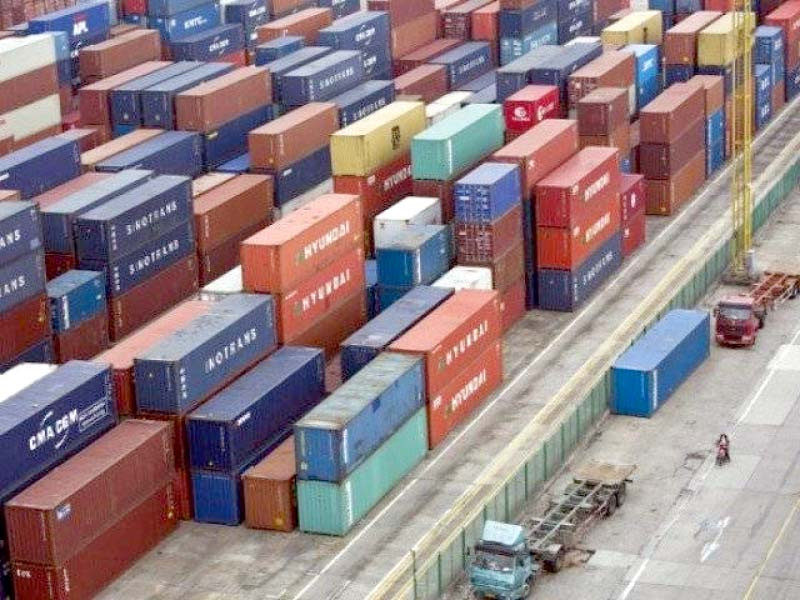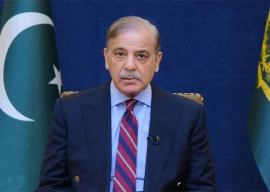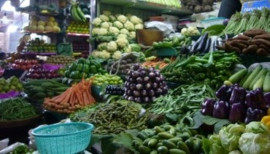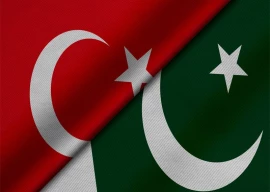
Pakistan has highlighted that the tendency to ignore a rules-based system and unilateral actions of World Trade Organisation (WTO) members are posing a threat to the multilateral trading system.
It also pointed to the lack of implementation of mandates from the WTO ministerial conferences and a dysfunctional dispute settlement body as other major challenges facing the world trade body.
The WTO’s 12th ministerial conference was held in Geneva from June 12-16, 2022. Minister for Commerce and Investment Syed Naveed Qamar led the delegation from Pakistan comprising officials from the permanent mission to the WTO and the Ministry of Commerce, said a statement issued on Saturday.
At the opening ceremony, the commerce minister spoke about the challenges confronting the multilateral trading system. He also highlighted some of the challenges being faced by Pakistan in the wake of balance of payments crisis and the looming threat to food security.
He underscored Pakistan’s commitment to the multilateral trading system and called for focusing on issues that would help the world build back from the Covid-19 pandemic and prepare for the future.
These included finding solutions to the challenges posed by the intellectual property system, lack of technology transfer to the developing countries and access to policy tools to augment production.
The minister emphasised the need for upholding the fundamental principles enshrined in the Marrakesh Agreement such as consensus-based decision making and special and differential treatment to achieve the objectives of economic growth and sustainable development, raising standards of living and generating employment.
During the conference, Pakistan’s delegation participated in all major areas of negotiations to defend its main interests.
On the issue of WTO response to the pandemic, Pakistan played a central role in leading a coalition of several members and successfully negotiated the ministerial declaration on the response to Covid-19 and preparedness for future pandemics.
This document clearly recalls the commitments of members under the WTO, challenges faced during the pandemic, lessons learnt and commitment to prepare for future emergencies by focusing on issues of food security, technology transfer, intellectual property, trade in services, and regulatory and international cooperation.
As a co-sponsor of the demand for waiver on intellectual property rights to secure safe, equitable and affordable vaccines, Pakistan successfully negotiated the outcome under the Covid-19 TRIPS decision that would help the local manufacturers develop vaccines, therapeutics and diagnostics.
Pakistan’s delegation also took part in negotiations on reaching an agreement on fishery subsidies.
The agreement calls for the implementation of the United Nations Sustainable Development Goal (SDG) 14.6 to secure sustainable development by prohibiting harmful subsidies for fishing.
At the same time, it allows the developing countries special and differential treatment to assist fishing activities, particularly for resource-poor, artisanal and coastal fisheries.
In a session on WTO reforms, the commerce minister highlighted the existing imbalances in trade agreements that favoured the developed countries and called for restoring confidence in the organisation by adopting the development agenda and safeguarding the foundational principles of the organisation.
He emphasised Pakistan’s commitment to active participation, particularly in development work that could contribute to the achievement of long-term objectives of the developing countries.
The outcome of the ministerial conference included declarations on food security, collaboration with the World Food Programme, a specific time-bound extension of the moratorium on customs duties on electronic transmissions, recognition of the global environmental challenges, commitment to work in the area of services trade, and the importance of strengthened collaboration and cooperation among international organisations.
In bilateral meetings with other developing countries, Pakistan stressed the need for enhanced bilateral cooperation in all areas and collective participation in multilateral negotiations through effective coalition building.
During the conference, the WTO agreed on the first change to global trading rules in years as well as a deal to boost the supply of Covid-19 vaccines in a series of pledges that were heavy on compromise, Reuters reported on Friday.
The deals were forged in the early hours of the sixth day of the conference of more than 100 trade ministers that was seen as a test of the ability of nations to strike multilateral trade deals amid geopolitical tensions heightened by the Ukraine war, it said.
Delegates cheered after they passed seven agreements and declarations just before dawn on Friday.
WTO Director-General Ngozi Okonjo-Iweala told them: “The package of agreements you have reached will make a difference to the lives of people around the world. The outcomes demonstrate that the WTO is in fact capable of responding to emergencies of our time.”
Published in The Express Tribune, June 19th, 2022.
Like Business on Facebook, follow @TribuneBiz on Twitter to stay informed and join in the conversation.




1719211536-0/BeFunky-collage-(81)1719211536-0-165x106.webp)



















COMMENTS
Comments are moderated and generally will be posted if they are on-topic and not abusive.
For more information, please see our Comments FAQ